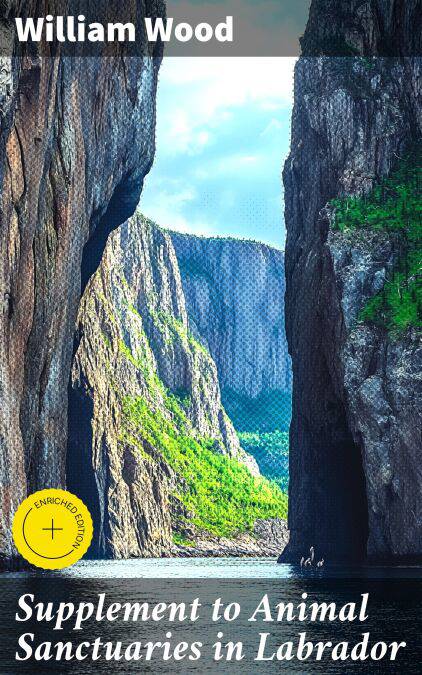
- Afhalen na 1 uur in een winkel met voorraad
- Gratis thuislevering in België vanaf € 30
- Ruim aanbod met 7 miljoen producten
- Afhalen na 1 uur in een winkel met voorraad
- Gratis thuislevering in België vanaf € 30
- Ruim aanbod met 7 miljoen producten
Zoeken
Supplement to Animal Sanctuaries in Labrador E-BOOK
Enriched edition. Exploring Labrador's Wildlife Sanctuaries: A Comprehensive Account
William Wood
E-book | Engels
€ 0,49
Omschrijving
In "Supplement to Animal Sanctuaries in Labrador," William Wood offers an insightful exploration into the vital role of wildlife conservation in one of North America's most pristine environments. The book is marked by Wood's meticulous attention to detail and his evocative prose, which captures the rugged beauty of Labrador's landscapes while addressing the urgent ecological issues faced by its animal sanctuaries. Through a blend of narrative and analytical writing, he examines the historical context of wildlife protection in the region and presents insightful case studies that highlight the delicate balance between human activity and animal habitats. William Wood, an accomplished naturalist and conservationist, draws from a wealth of personal experience in wildlife studies to inform his work. His profound appreciation for Labrador's unique ecosystem, combined with his academic background in environmental science, has undoubtedly shaped his approach to wildlife conservation. Wood's dedication to preserving the natural world is evident not only in his writing but also in his activism, as he actively participates in various conservation initiatives throughout the region. This book is highly recommended for readers interested in environmental literature, conservation efforts, and the intricate interplay between humans and nature. Wood's eloquent writing and compelling arguments make a significant contribution to the literature on wildlife protection, offering not just a call to action but also a deep appreciation for the natural world and the sanctuaries that protect it.
In this enriched edition, we have carefully created added value for your reading experience:
- Hand‐picked Memorable Quotes shine a spotlight on moments of literary brilliance.
- Interactive footnotes clarify unusual references, historical allusions, and archaic phrases for an effortless, more informed read.
In this enriched edition, we have carefully created added value for your reading experience:
- Hand‐picked Memorable Quotes shine a spotlight on moments of literary brilliance.
- Interactive footnotes clarify unusual references, historical allusions, and archaic phrases for an effortless, more informed read.
Specificaties
Betrokkenen
- Auteur(s):
- Uitgeverij:
Inhoud
- Aantal bladzijden:
- 120
- Taal:
- Engels
Eigenschappen
- Productcode (EAN):
- 4064066164188
- Verschijningsdatum:
- 18/12/2019
- Uitvoering:
- E-book
- Beveiligd met:
- Digital watermarking
- Formaat:
- ePub

Alleen bij Standaard Boekhandel
Beoordelingen
We publiceren alleen reviews die voldoen aan de voorwaarden voor reviews. Bekijk onze voorwaarden voor reviews.








